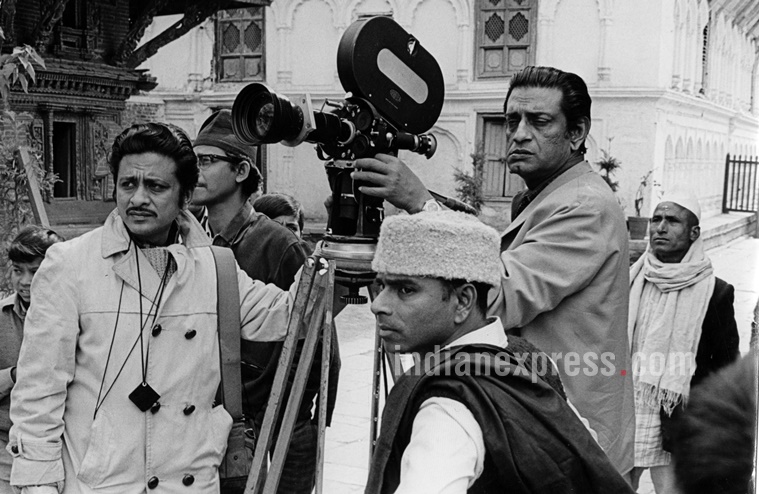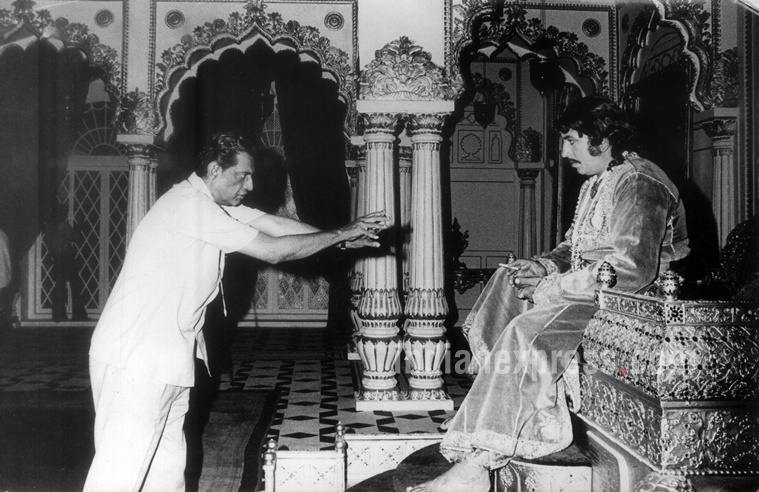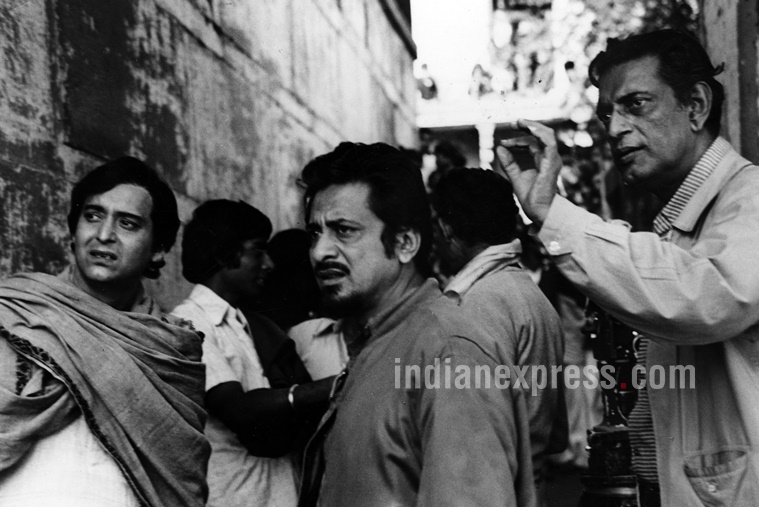Remembering Satyajit Ray: 10 quotes from the film-maker that give an insight into the genius’ mind
There's always some room for improvisation, Satyajit Ray once said. This is his 96th birth anniversary.
 Having given gems like Pather Panchali, Shatranj Ke Khiladi, Ghare Baire and Agantuk to Indian cinema, the timelessness of his stories makes Satyajit Ray an unforgettable pillar in the world of cinema. Here he is seen with his cameraman Soumendra Roy in Kathmandu, Nepal. (Express archive photo)
Having given gems like Pather Panchali, Shatranj Ke Khiladi, Ghare Baire and Agantuk to Indian cinema, the timelessness of his stories makes Satyajit Ray an unforgettable pillar in the world of cinema. Here he is seen with his cameraman Soumendra Roy in Kathmandu, Nepal. (Express archive photo)
Talk to any Bengali, and the two Taureans they swear by are Rabindranath Tagore and Satyajit Ray. Born five days apart (though, the gap in years is significantly more), both Tagore and Ray have moulded — in many ways — the modern Bengali identity. A heavily involved conversation on arts, society, sociopolitical scenario in the cultural perspective won’t pass without a reference to these two gentlemen. And, the latter has left his own — more recent — imprint of his take on 19th century Bengal in all his movies.
Now, on what would have been Ray’s 96th birth anniversary, we look back at 10 quotes by the genius film-maker that not only give an insight into his directorial style, but also his approach to life, universe and everything. There is much to learn for the rest of us, yet.
 Known for varied range and humanistic touch to his stories, master storyteller Satyajit Ray was born on May 2, 1921 in Kolkata. (Express archive photo)
Known for varied range and humanistic touch to his stories, master storyteller Satyajit Ray was born on May 2, 1921 in Kolkata. (Express archive photo)
* The only solutions that are ever worth anything are the solutions that people find themselves.
* When I write an original story I write about people I know first-hand and situations I’m familiar with. I don’t write stories about the nineteenth century.
* There’s always some room for improvisation.
 Satyajit Ray sharing a laugh with the legendary Harindranath Chatterjee, who is known for playing the character of Barfi in Goopi Gayne Bagha Bayne. (Express archive photo)
Satyajit Ray sharing a laugh with the legendary Harindranath Chatterjee, who is known for playing the character of Barfi in Goopi Gayne Bagha Bayne. (Express archive photo)
* I had developed this habit of writing scenarios as a hobby. I would find out which stories had been sold to be made into films and I would write my own treatment and then compare it.
* Last, but not least — in fact, this is most important — you need a happy ending. However, if you can create tragic situations and jerk a few tears before the happy ending, it will work much better.
 Satyajit Ray directing Amjad Khan on the set of film Shatranj Ke Khiladi. (Express archive photo)
Satyajit Ray directing Amjad Khan on the set of film Shatranj Ke Khiladi. (Express archive photo)
* Dominus Omnium Magister. It means God is the master of all things.
* Somehow I feel that an ordinary person–the man in the street if you like – is a more challenging subject for exploration than people in the heroic mold. It is the half shades, the hardly audible notes that I want to capture and explore.
 A page from the shooting script of Satyajit Ray’s Goopy Gyne Bagha Byne showing the bania on the left and the Englishman of the right in the ‘dance of the ghosts’. The Englishman’s face is Shiny, pupils of the eyes ears and nails, clothes and hat are white, teeth and all decorations are black. (Express archive photo)
A page from the shooting script of Satyajit Ray’s Goopy Gyne Bagha Byne showing the bania on the left and the Englishman of the right in the ‘dance of the ghosts’. The Englishman’s face is Shiny, pupils of the eyes ears and nails, clothes and hat are white, teeth and all decorations are black. (Express archive photo)
* When a new character appears in your tale, you must describe his looks and clothes in some detail. If you don’t, your reader may imagine certain things on his own, which will probably not fit whatever you say later on. So…
* The director is the only person who knows what the film is about.
* Cinema’s characteristic forte is its ability to capture and communicate the intimacies of the human mind.
 Satyajit Ray with cameraman Soumendu Ray and Soumitra Chatterjee in what looks like the sets of Feluda. (Express archive photo)
Satyajit Ray with cameraman Soumendu Ray and Soumitra Chatterjee in what looks like the sets of Feluda. (Express archive photo)




- 01
- 02
- 03
- 04
- 05



























